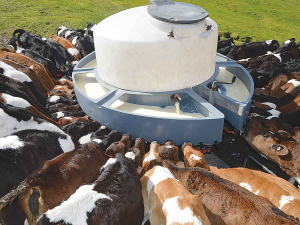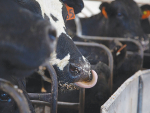Rearing a quality calf starts with good nutrition and management of the cow to support a healthy, robust calf at birth, followed by quality nutrition and management practices during rearing.
Nutrition, and thus feed inputs, plays a crucial role in the development, growth and well-being of young calves.
As with any feed it is important to source products that are nutritious, highly reputable, carefully designed and made from high-quality ingredients.
Rearing healthy calves begins with a careful selection process. Ideally you want to be able to buy from as few suppliers as possible and from those who have good feeding and management practices on their farm including vaccinating their herd against rotavirus.
Ask about the farm’s colostrum management practices and how they ensure that a calf receives adequate colostrum within the first 12 hours after birth. If the Serum Total Protein (STP) or Immunoglobulin G (IgG) is known for a calf at the time of sale, it is worth paying more for these calves because good levels will protect calves from disease during the first month of life.
At purchase, check calf navels, which should be clean and dry with no sign of infection or inflammation (e.g. swelling, pus or scabs).
A wet navel indicates a calf is under 24 hours old and therefore too young to purchase (a calf should be more than 4 days old before it’s moved).
Also check eyes, ears, feet and tails to ensure animals are in good health before they enter your rearing facility and ask about antibiotic treatments (if any).
To prevent infection, the navel should be treated with an approved iodine solution immediately after birth and following transportation. If possible, check for signs of iodine treatment (e.g. yellow hair around the navel).
Transportation can be stressful for calves and detrimental to their health. Drive with care when calves are in tow, provide them with sufficient space to lie down and a clean, dry, draft-free environment, and handle calves gently upon arrival. If a calf is dehydrated after coming from a sales yard or a long journey, it is recommended that an electrolyte (approx. 4L) is offered for the first feed. If a calf is sourced locally, the first feed should be milk.
Rearing facilities should be set-up and maintained well to ensure calves stay healthy. Young calves should be housed for at least four weeks to ensure they stay warm and are using their energy for growth.
Housing calves
• Must be dry and draught-free for calves to regulate body temperature. Calves should be protected from wind and rain in a structure twice as long as wide.
• Cover the floor surface with dry materials such as sawdust, shavings, straw, post peelings or wood chip to a depth of at least 200-300mm. Avoid dusty materials. Ideally the floor should be lower at the front to help drain effluent and water. Regularly muck out and top up the bedding so it is clean and dry.
• Good ventilation is essential and is best situated where the walls meet the ceiling. It’s easier to ventilate across the shed, not down the length. Ventilation should be adaptable, so the use of boards, shutters or wind cloth is recommended.
• Article sourced from NZ AgBiz calf rearing guide


















